Humanities & Social Sciences
Mak New hires trained on varsity policies, curriculum development & implementation
Published
3 years agoon
By
Jane Anyango
New employees across colleges of Makerere University were on 7th December 2022 equipped with information and tools on how to succeed on the job at Makerere University.
The main objectives were to update the new hires in terms of the policies and to help them know the core business of curriculum development and implementation and to make sure that they are effective teachers.
The third new hires workshop held in the Yusuf Lule Auditorium a was organized by CHUSS Centre of Excellence in Research, Teaching and Learning (CERTL). The College of Humanities and Social Sciences (CHUSS), received a grant from the Mellon Foundation of New York for the establishment of the center to explore and develop mechanisms of strengthening and promoting teaching and learning in the humanities and social sciences.
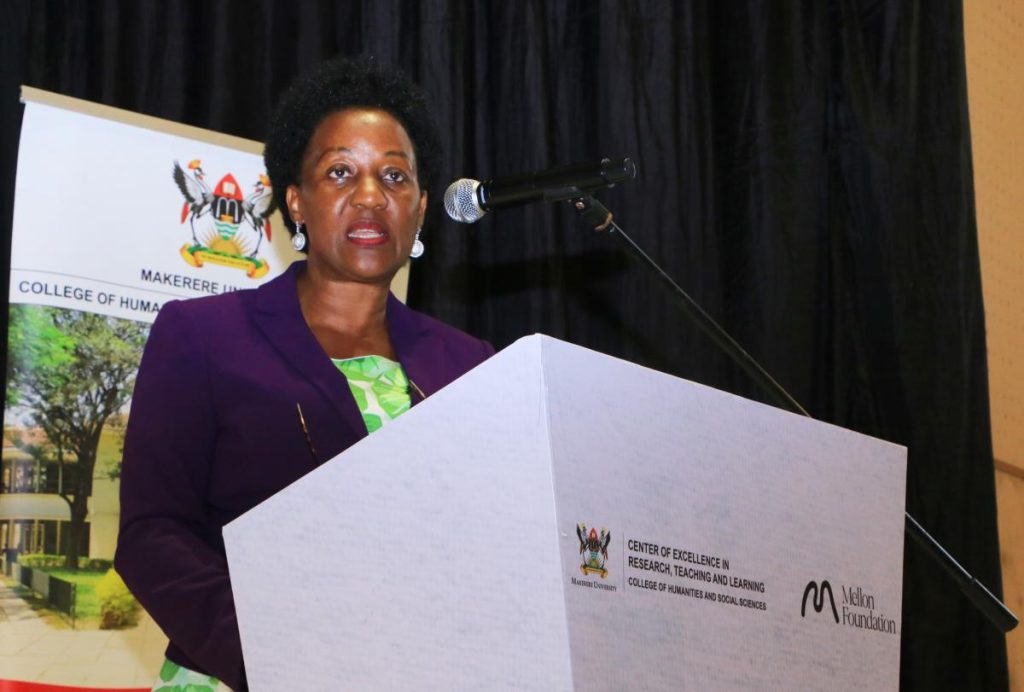
The third new hires training was facilitated by panelists from university Directorates, prominent alumni and former staff working outside Makerere University including Prof. Aaron Mushengyezi, the Vice Chancellor Uganda Christian University (UCU) Mukono. The workshop was officially opened by the Deputy Vice Chancellor in charge of Academic Affairs (DVCAA) represented by the Principal, College of Agricultural and Environmental Sciences Assoc. Prof. Gorettie Nabanoga.
The DVC AA appreciated all those involved in this noble task of orienting new staff noting that the importance of employee orientation in many organizations is often understated. The new hires workshop according to the DVCAA was in line with the mandate of the university in ensuring that teaching and learning is effective and secondly, it was timely for new hires to be aware of the changes brought by COVID in the way teaching and learning is conducted.
“Orientation serves to assist new employees with the tools and information they need to succeed in the job. It establishes the stage for human resource processes and company policy in the organization. An effective employee orientation program like this one will make a notable difference in how swiftly a new employee becomes prolific with other long-term impressions on the organization”, Part of the speech read
The DVC commended all those who have put aside their commitments to come and provide the new recruits with the tools and information they require to serve the university.
“Orientation encourages employee confidence and helps the new employee adapt faster to the job; Contributes to a more effective, productive workforce; Improves employee retention; and. Promotes communication between the supervisor and the new employee. Without an adequate, skilled and well-motivated workforce operating within a sound human resource management programme, development is not possible, “he added.
The DVC AA congratulated and welcomed the new hires for successfully joining Makerere noting that the University has many opportunities but, like any other higher education institution, there are challenges including; the academic student -staff ratio, inadequate funding, staff welfare issues, and infrastructural challenges and challenges related to managing relationships, training and ddevelopment, talent retention, diversity in the workplace, embracing inevitable change as well as employee health and well-being.
Besides the Policy Framework, Financial Sustainability and Infrastructure Support, the the DVCAA reported that the new Strategic Plan (2020/21-2030/31) considers Human resource as the foundation of the University’s success.
He pledged the University commitment to have an integrated and innovative people-centered services that foster attraction, retention and development of an engaged, rewarded, motivated, healthy and effective workforce supporting the strategic direction of the University.
The objectives under Human Resource Development according to the Deputy Vice Chancellor include; to attract, recruit and retain quality Human Resource to support the mission of the University; to create an enabling environment for optimal performance of staff in service delivery; and to increase the capacity of teaching staff to deliver using modern pedagogy, including use of Online, Distance and e-Learning (ODEL) technologies.
“The university has continued to lobby government and succeeded on welfare where salaries for staff were more than doubled by the target period. Appraisal tools were developed and are being used and staff development programmes, including sabbaticals, were instituted. The academic staff-student ratio was decreased which is within acceptable levels internationally and we continue to pursue our goal of becoming research led- a move to focus more on graduate training” he added.
He reminded recruits that Makerere is an equal opportunity institution that embraces diversity in order to achieve maximum potential without discrimination. He implored them to commit to the university’s core values including accountability and upholding ethos that meet the expectations of the different stakeholders
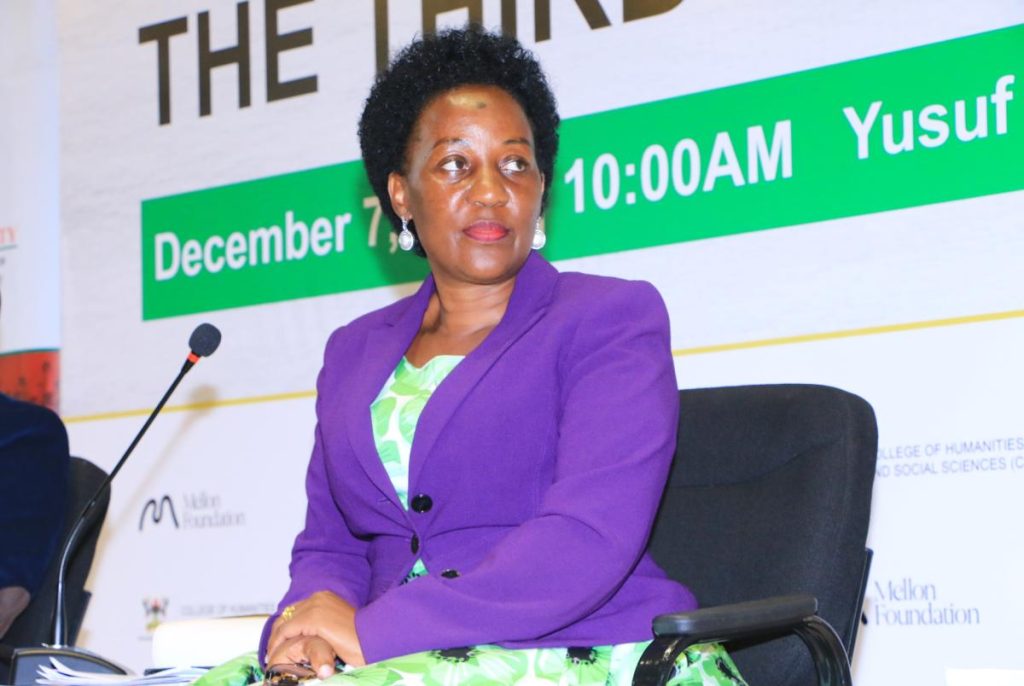
The DVC AA also implored employees to uphold Professionalism and adopt work ethics that demonstrate competence and capacity to generate results to the expected institutional, national, international and discipline specific standards.
“We also cherish integrity and upholding ethical values that will ensure that you do the right thing in all circumstances and maintaining the value of honesty, trust and responsibility in all your actions.
You are expected to have respect for fellow staff and students and that you will conduct yourselves with due regard and consideration for the rights of others and ensure acknowledgement, attention and good judgement in dealings with all our stakeholders”, he added
He applauded CHUSS and CERTL for this initiative and asked the Director and his team to continue using it to improve teaching and learning. As management, we also pledge our continued support to the center.
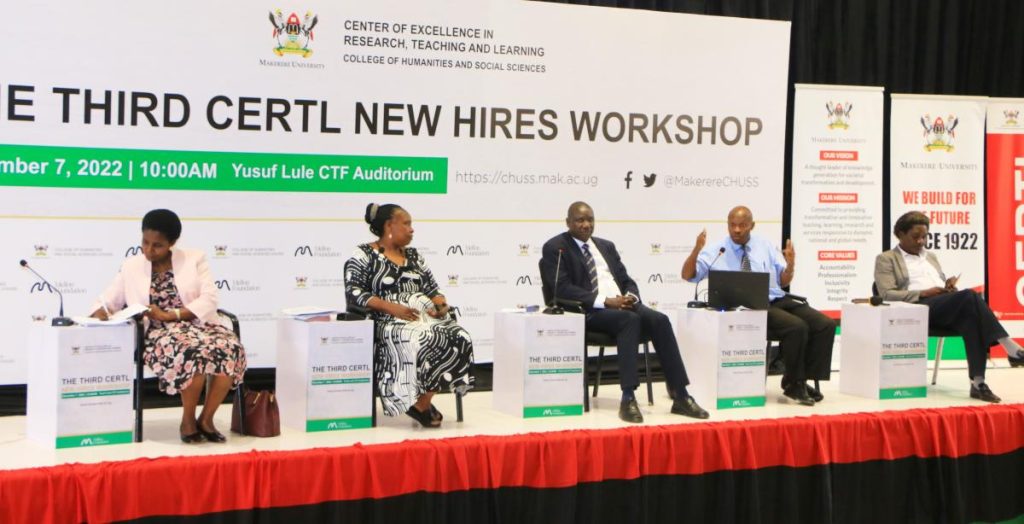
Session one on Makerere University academic and other policies brought together a panel of experts including Patience Mushyengyezi representing the Academic Registrar who spoke on academic policies. The Director Quality Assurance Dr. Cyprian Misinde presented on Quality Assurance policy while the Mr. Julius Lebo who represented the Acting Director Ssanyu Lawrence deliberated on the Human resources policy and the Director Gender Mainstreaming Dr. Baine Euzobia presented the Gender mainstreaming policy and the Sexual Harassment policy.
Session two of the training was on working at a university and focused on privileges and academic responsibilities with advise from panelists: Prof. Paul Birevu Muyinda, Prof. Anthony Muwagga Mugagga, Prof. Florence Kyoheirwe Muhanguzi and Dr. James Taabu Busimba.
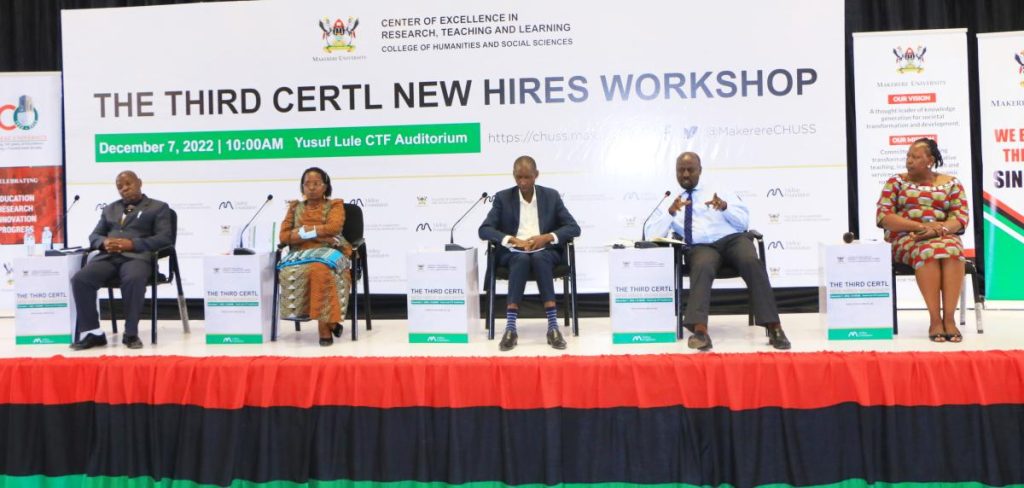
Aspects covered in session two included: Managing relationship with colleagues, Heads of Departments, Deans and Principals, Academics and senate Academics and peers, Academics and support staff, preparation to teach and Sexual Harrassment and Teaching that as the elephant in the room .
The training was also graced by Vice Chancellor Uganda Christian University Mukono Prof. Aaron Mushengyezi. In his keynote address titled: From Teaching Assistant to Vice Chancellor: The academic and professional journey of Makerere academic. Prof. Mushengyezi advised new hires that it is alright to start small as a Teaching Assistant and progress step by step, but always endeavor to publish and aim at professorship as the goal.
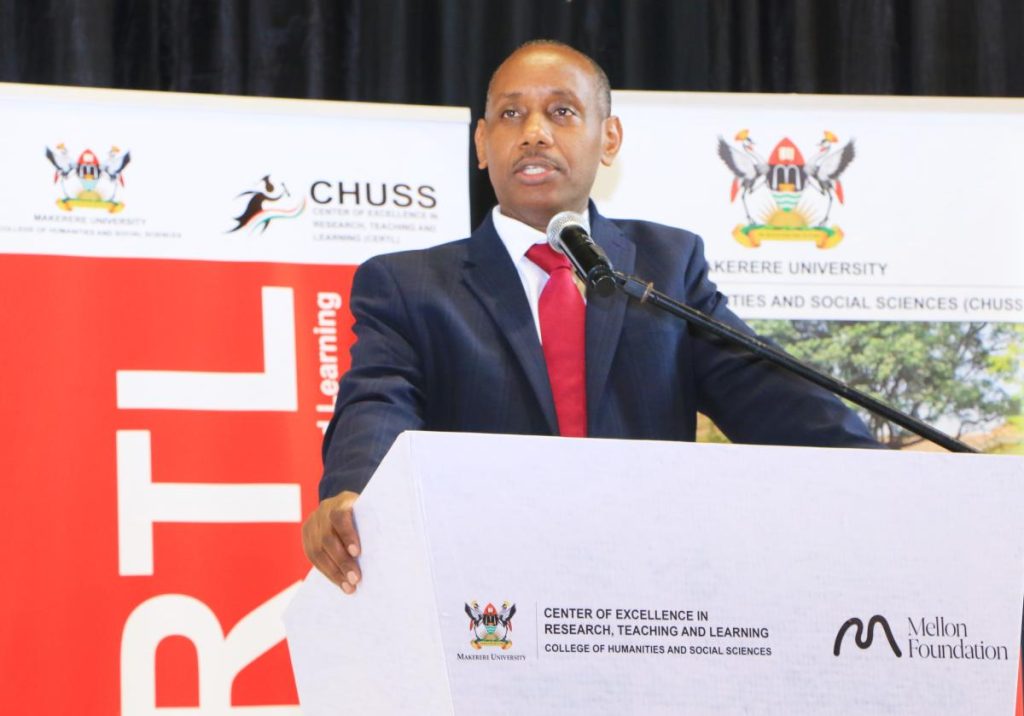
Mushengyezi described Makerere as a place full of opportunities and privileges for employees to tap into saying, working as an academic requires hard work and commitment but, a sacrifice worth making.
He advised new employees to define the philosophy of their leadership, lead to make a difference and serve beyond self-saying, sometimes they have to make sacrifices of their leisure and use creativity to make things work.
The professor also urged employees to pursue dreams beyond the university obligations, engage in community work, join good networks, support just courses, stand for the good of the institution, be sober minded, and to always put God first.
“Professorship is our dream us academicians, we all dream to be professors. Position yourself, find out what you are good at and use it as an opener for you. When there is always an opportunity for you, go for it. The biggest problem is our mindset change. Always be focused and deal with mindsets.
Join good networks of winners and associate with people who are innovative because you learn from them. Find a good mentor with mentorship skills that you admire. Lastly live to make a change in the community and God will bless you”, he advised.
The Director CERTL Prof. Andrew Ellias State told new hires that they are expected to communicate with students very well and to remember that culture and emotions affect communication hence the need to check their teaching effectiveness.
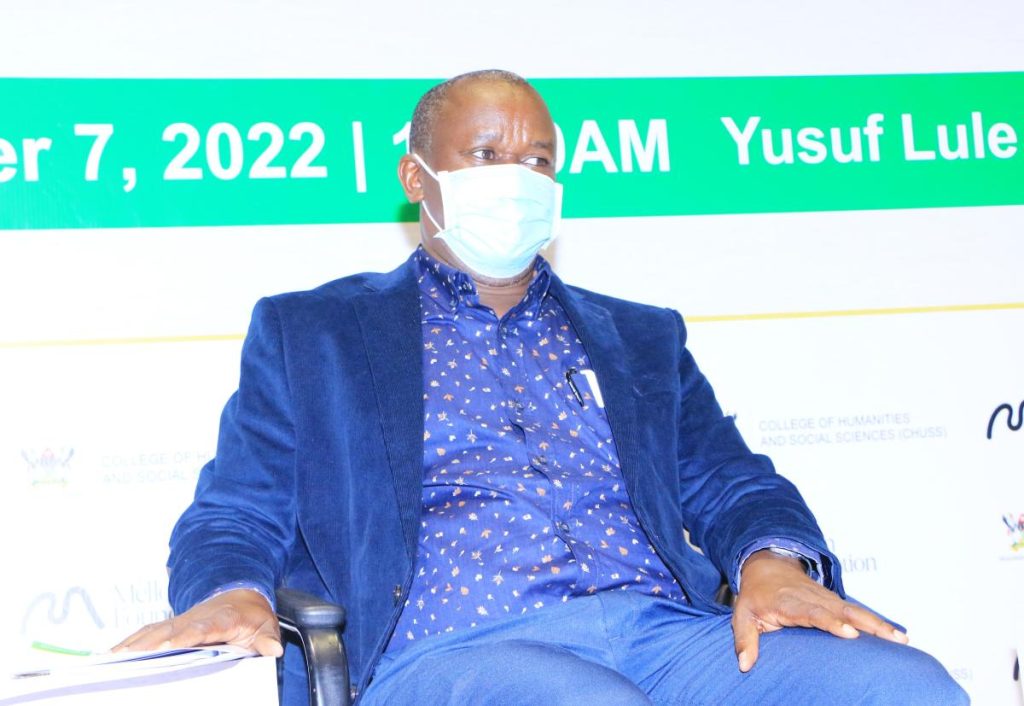
“Students will also remember you because of your unique teaching techniques and you need to ask and evaluate yourself if you doing the right thing. Promote effective learning by encouraging students to deal with challenges in class and bring out the ideas and also debates. Do not prejudge. Engage students in active learning. ”, Prof. State advised
From the day’s discussion State asked new hires to pick positive professional relationships on reason that they are going to be in a community with other scholars, colleagues and are also going to teach multiple classes, serve on other committees, have family and also squeeze in time for scholarship.
“Take time and talk to others If the opportunity presents and involve those in and out of your department. On top of that, be kind, patient for the interests of others, don’t be selfish. Develop a reputation for acting with integrity and trying to understand your colleagues’ perspectives and avoid departmental factions.
Support networks, seek out mentoring in your profession line. Attend conferences, tell colleagues what your research interests are, where you want to specialize in. Take out colleagues for coffee and tea in case you have something to discuss”, State advised.
Prof. State also advised employees never to give up when their articles for publication get nasty comments but instead marry their science, for better or worse, pursue their passions and make sure they are good and also learn to say no and not to be afraid to change directions.
You may like
-


76th Graduation Highlights
-
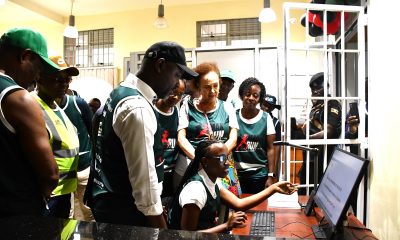

Students empowered to thrive through the Semester
-


Olivia Nakisita and the Quiet Urgency of Adolescent Refugee Health
-
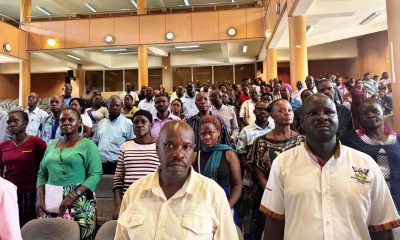

Support Staff Trained to Promote Safety of Students and Stakeholders
-
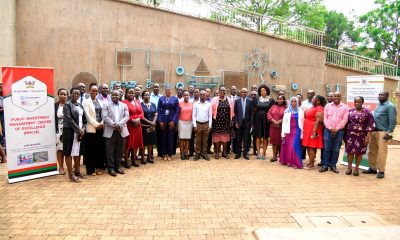

Makerere Hosts Second Cohort of MoKCC&MA Procurement Officers for E&S Safeguards Training
-
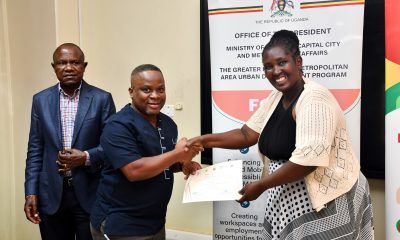

PIM Centre Awards Certificates to MoKCC&MA Officers after Safeguards Training
Humanities & Social Sciences
Meet Najjuka Whitney, The Girl Who Missed Law and Found Her Voice
Published
2 days agoon
February 23, 2026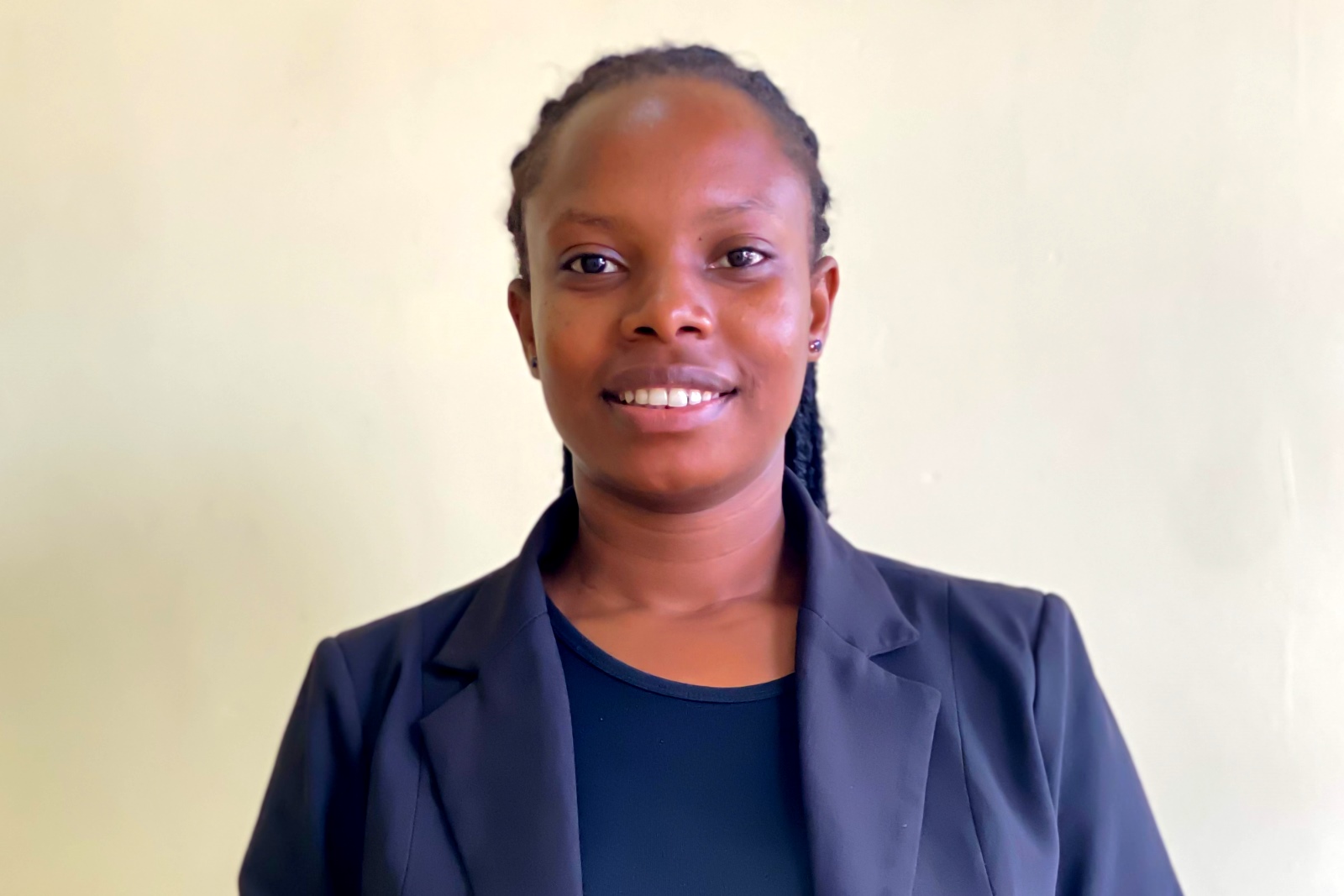
On the morning of Friday, February 27, when the academic procession winds its way across Makerere University’s Freedom Square for the last day of the 76th Graduation Ceremony, Whitney Najjuka will walk into history with a number beside her name: 4.46.
At Makerere, that number means First Class Honours. It means the Vice Chancellor’s List. It means she graduates as the only First-Class student in Journalism and Communication this year. But numbers, as Whitney has learned, rarely tell the full story.
Born on March 27, 2002, in Nabbingo, Kyengera Town Council, to Margaret Kusemererwa and Fred Kasirye, dreamt she would do Law, one of the disciplines, prestigious, almost inevitable next steps for a student who had excelled in secondary school. She had done everything correctly. Studied hard. Scored well. Followed the script.
But Makerere University had other plans. She missed the pre-entry mark, but found her name under Journalism and Communication, another prestigious course offered by the Journalism and Communication Department at Makerere University.
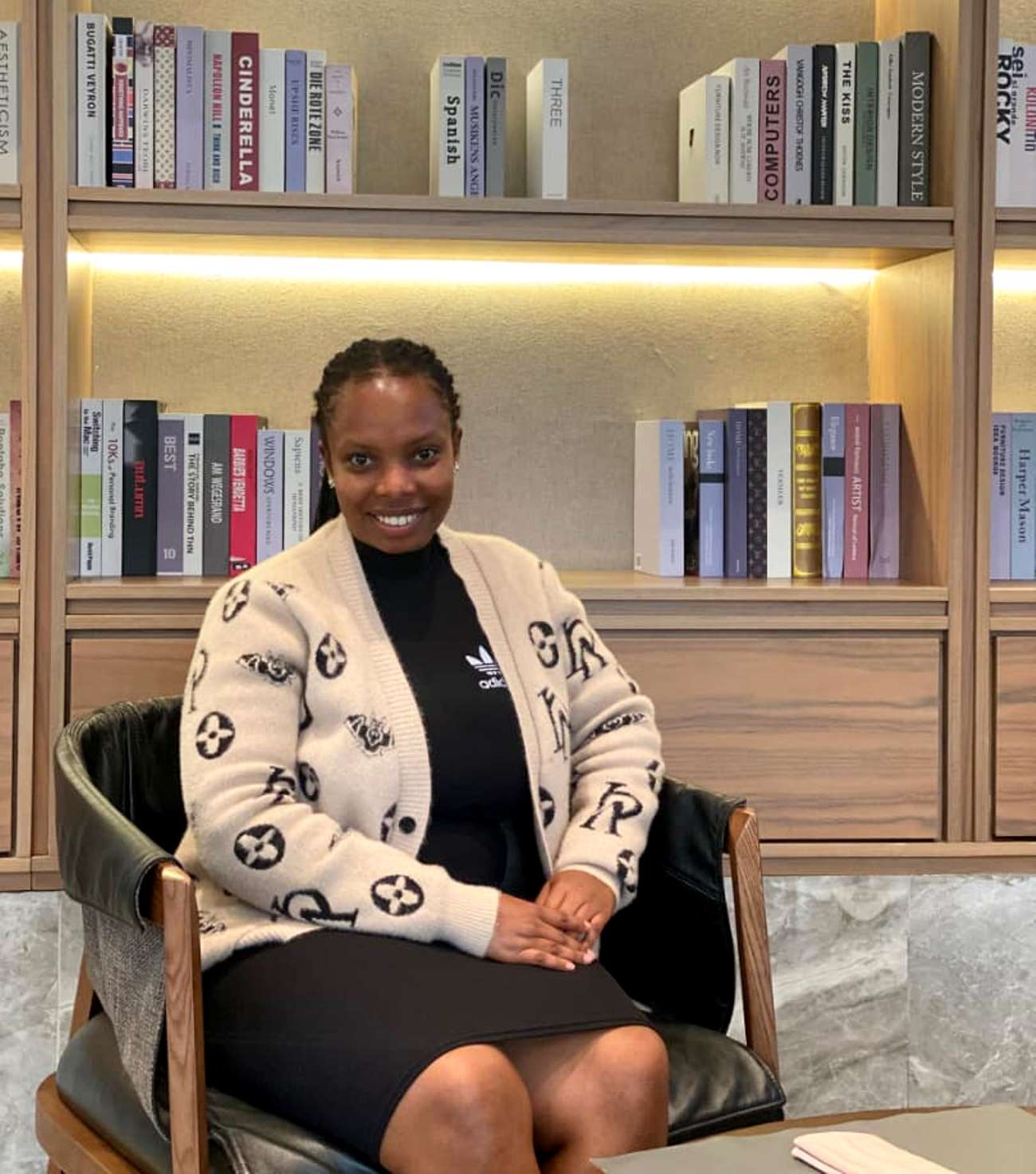
Najjuka began her academic journey at Muto Primary School in Buwama, earning 8 aggregates in the Primary Leaving Examination, a performance that positioned her strongly for secondary school.
She would later join St. Lucia Hill School, Namagoma, where she earned 20 aggregates at O-Level and 17 points in History, Luganda, and Divinity at A-Level.
Missing her dream course, Law, felt at first, like a detour. But Whitney was encouraged by Sanyu Christopher, her uncle, and she settled for a government-sponsored slot in the Bachelor of Journalism and Communication at Makerere, which she had applied for before.
She entered uncertain. But she graduates transformed.
The Pivot That Became a Purpose
Whitney speaks of her early university days with candor. She did not arrive at the Department of Journalism and Communication with a burning childhood ambition to be a journalist, but because another door had closed.
Then, Social and Behavior Change Communication happened. Applied Strategic Communication happened. She began to see media not as headlines and microphones, but as architecture, shaping how societies think, argue, and act.
The turning point came in her third year. The Female Journalist Foundation published her story on Sexual Gender-Based Violence (SGBV) and its emotional toll on survivors. What startled her was not its publication but the reaction. Comments flooded in. Debates ignited, especially about the role of men in combating GBV.
“I realized media doesn’t just report,” she says. “It frames how society views a crisis.”
Her voice, once tentative, had entered a national conversation.
The Discipline Behind 4.46
At Makerere University, a First Class CGPA is not built on brilliance alone but on ritual.
Whitney’s ritual began with showing up, on time, every time. She treated lectures as appointments with her future self. She refused to confine her learning to the syllabus. While attending workshops at the Aga Khan Graduate School of Media and Communication and obtaining external certifications, she sought and was open to mentorship through the Public Relations Association of Uganda (PRAU).
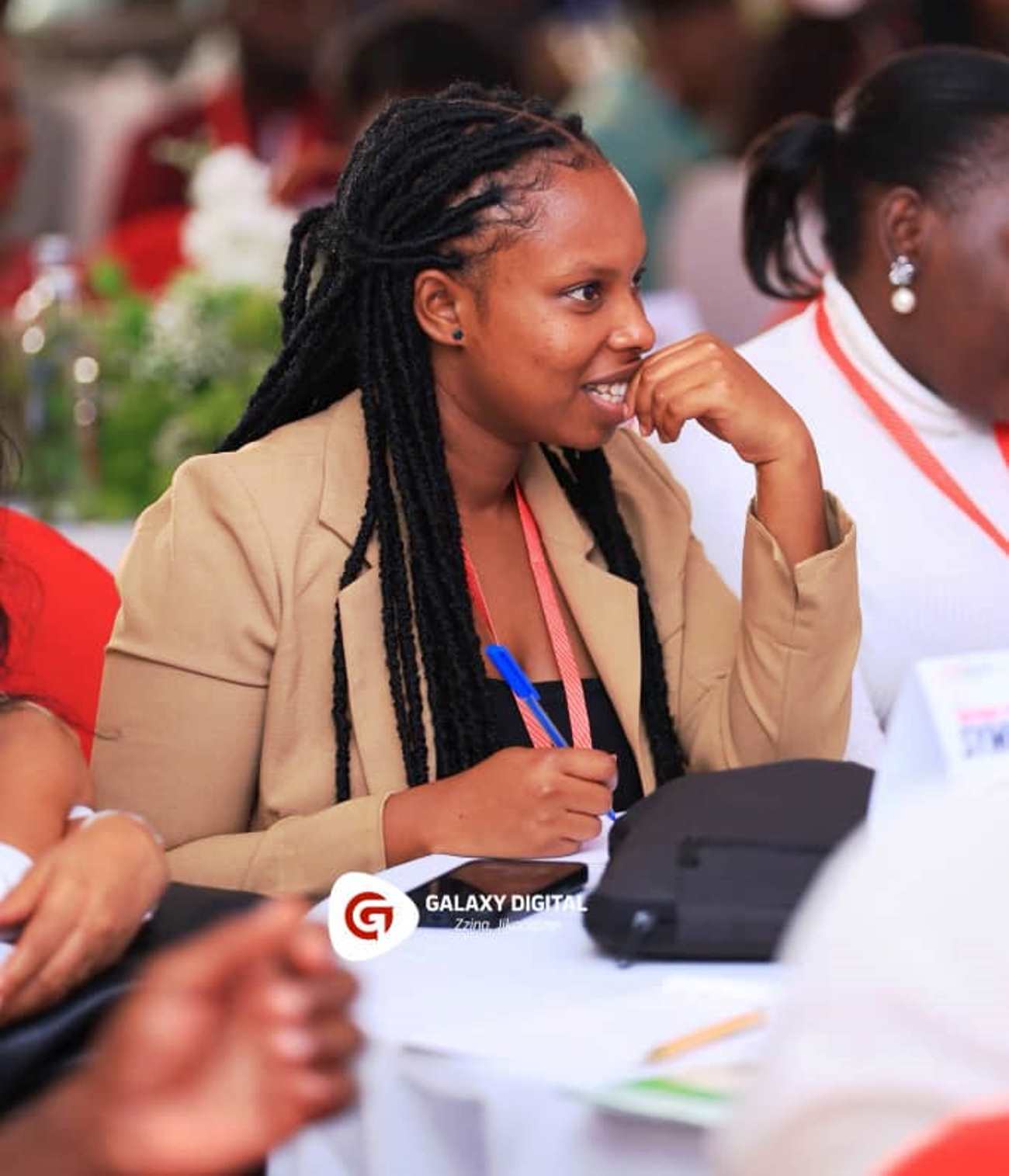
She wanted theory anchored in practice. And then there was the commute.
From Nabbingo, a hill in Wakiso District, some 18.6 km to Kampala, where the Makerere Main campus is situated, and back, nearly 20 hours a week dissolved into Kampala traffic. Two-hour journeys before 8:00 a.m. lectures. Dust. Noise. Headaches. She learned to manage energy the way others manage time. Fatigue became a tutor in resilience.
“I had to be intentional with every remaining hour,” she says. “Excuses were not an option.”
Learning to Practice Communication
If classrooms taught her analysis, presentations taught her courage. Pitching projects, defending research, and standing before peers quick to critique forced her to think on her feet. She was no longer simply studying communication; she was practicing it.
In 2024, the AGMES Fellowship at the Aga Khan Graduate School of Media and Communication pushed her further. She received funding to produce a capstone project on the mental impact of gender-based violence on survivors. She identified sources, conducted interviews, handled trauma with care, and worked with professional editors.
The Communication, she learned, is logistics and ethics as much as eloquence.
The Future She Sees
Whitney is optimistic about Uganda’s media landscape. The digital shift, she believes, has democratized influence. Young communicators are no longer confined to legacy newsrooms or offices.
Yet she sees a gap in the absence of structured research on sustainable, ethical, profitable independent media ventures in Uganda. Her ambition is not only to practice communication, but to study it. To produce data-backed frameworks that help young Ugandans transition from graduates to media entrepreneurs.
She wants to make the impact scalable.
What Remains
As the only First-Class graduate in her cohort, she is careful not to mythologize herself. “Success isn’t brilliance alone,” she says. “It’s a daily commitment when nobody is watching.”
Even before graduation, Whitney had stepped into the industry through a mentorship internship at Capital One Group (COG EA Ltd), a strategic marketing communications agency operating across East Africa.
At Capital One Group, we spoke to Paul Mwirigi Muriungi, the Managing Director and Head of Strategy, who spoke of Najjuka as a progressive and intentional young professional who approaches her work with curiosity, maturity, and responsibility.
“Her attitude is exemplary. She is teachable, receptive to feedback, and eager to grow. While technical skills can be taught, character, work ethic, and mindset determine long-term success, qualities that Whitney consistently demonstrates. Given her academic excellence and professional application, we believe she has a bright future both at Capital One Group and within the wider communications industry. She represents the kind of talent the profession needs: thoughtful, adaptable, and committed to excellence.
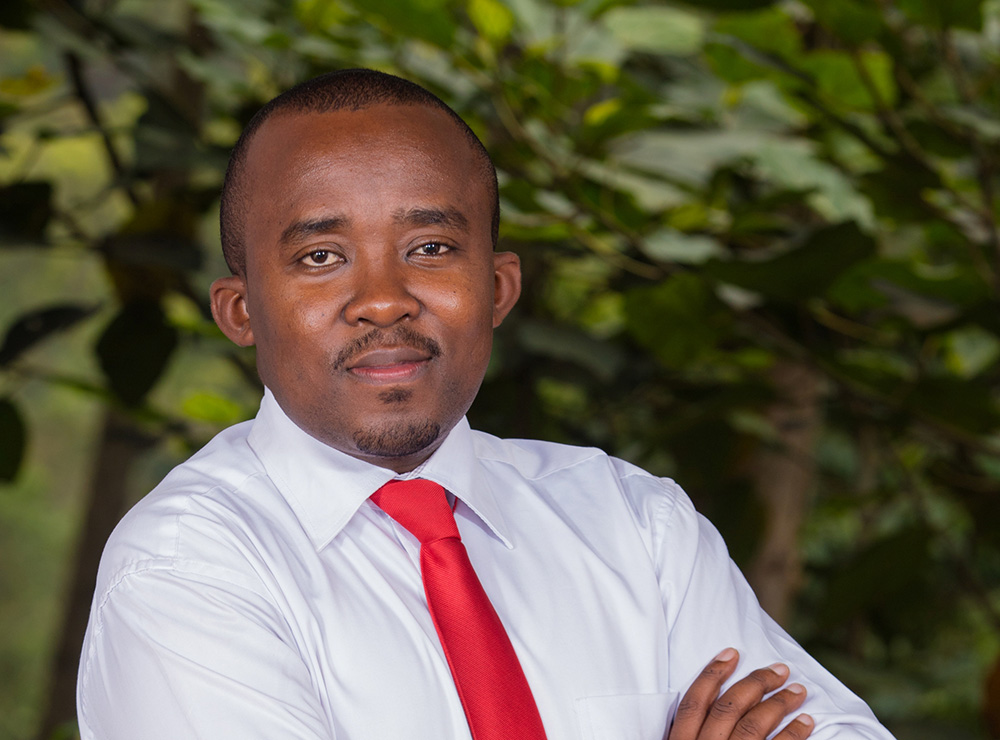
“We look forward to seeing her next chapter unfold,” says Mwirigi.
Najjuka’s gaze extends beyond her own trajectory. She speaks of what the Department could become. Furnished and equipped with industry-standard equipment, newsroom simulations, and deeper investment in data journalism as prayers. Her excellence is not self-congratulatory, but it is forward-looking.
“The University should support the Department to procure industry-standard equipment. Access to high-quality cameras, sound booths, and updated editing software like Adobe Creative Suite is critical to our learning environment,” she says.
Adding that, “We need a newsroom simulation, a physical or digital space where students work under real-time deadlines to produce content for the public. That would prepare us for industry and even strengthen the University’s own media platforms.”
In an era defined by metrics, algorithms, and digital traceability, data journalism is no longer a niche skill but a sine qua non of credible reporting. “There should also be more focus on data journalism and search engine optimization. These are no longer optional skills. Students would benefit immensely from stronger training in these areas.”
Dr. Aisha Nakiwala, the Head, Department of Journalism and Communication, says the faculty are very proud that she is graduating with a First Class—the only one in this year’s cohort.
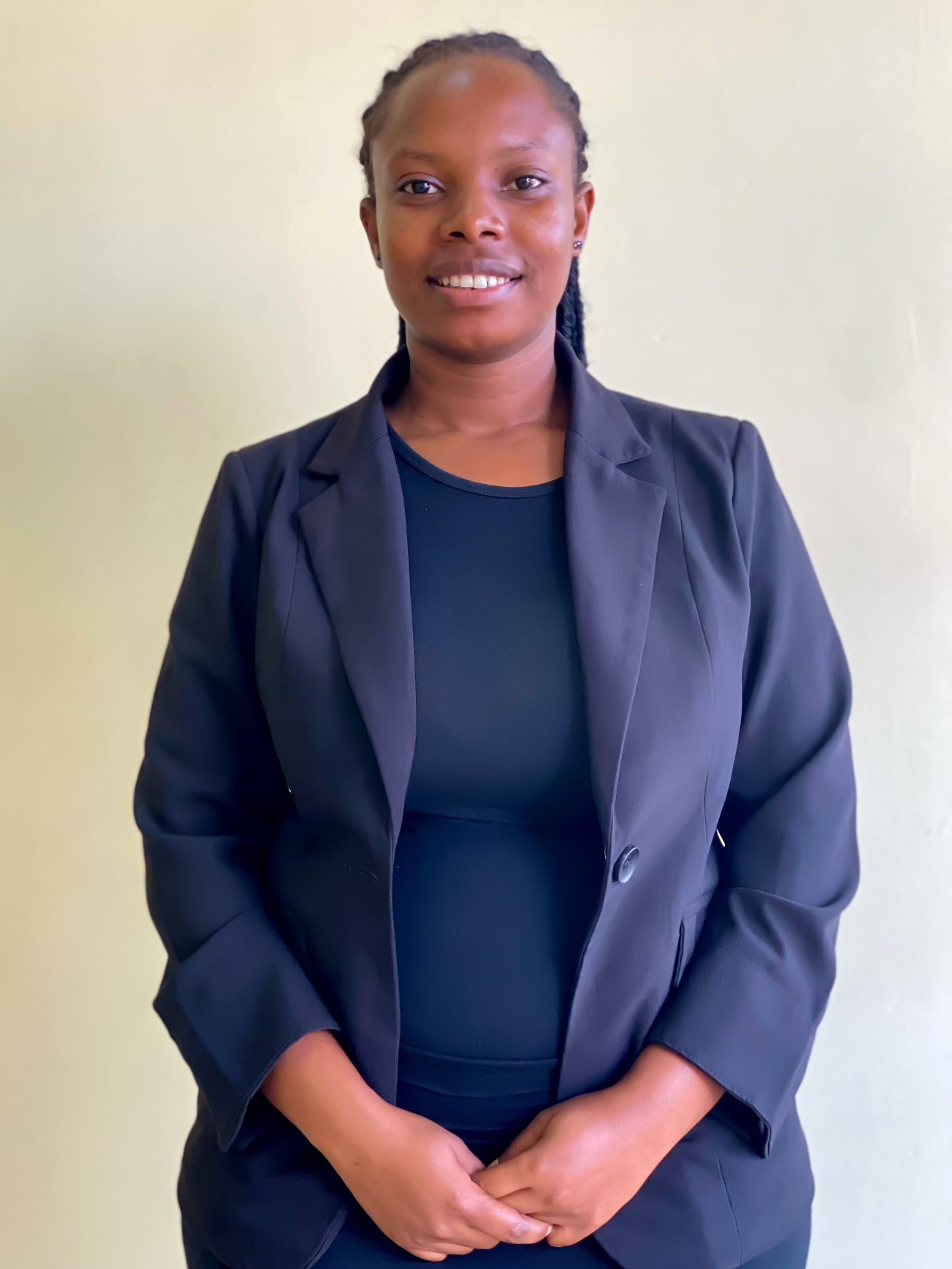
“This achievement reflects not only exceptional intellectual ability but also discipline, resilience, and sustained dedication to the highest standards over four years. Graduating with first-class honors is no small feat; it requires consistent outstanding performance.
“Her accomplishment sets a powerful example for continuing students and reaffirms our department’s commitment to nurturing excellence. We are confident she will make meaningful contributions to the communication profession and society at large,” says Dr. Nakiwala.
On graduation day, applause will crest and recede. The gowns will fold back into wardrobes. The transcripts will be filed away in cabinets. But something quieter will endure; a young woman from Nabbingo who once missed her Law mark, who spent 20 hours a week on the road, who discovered that storytelling is power, and who now walks into Freedom Square not by accident, but by intention.
Life, as she has come to understand it, lives on.
Humanities & Social Sciences
Dr. Pamela Khanakwa Honored for Steering Record 18 PhD Candidates for the Mak 2026 Graduation
Published
1 month agoon
January 23, 2026By
Jane Anyango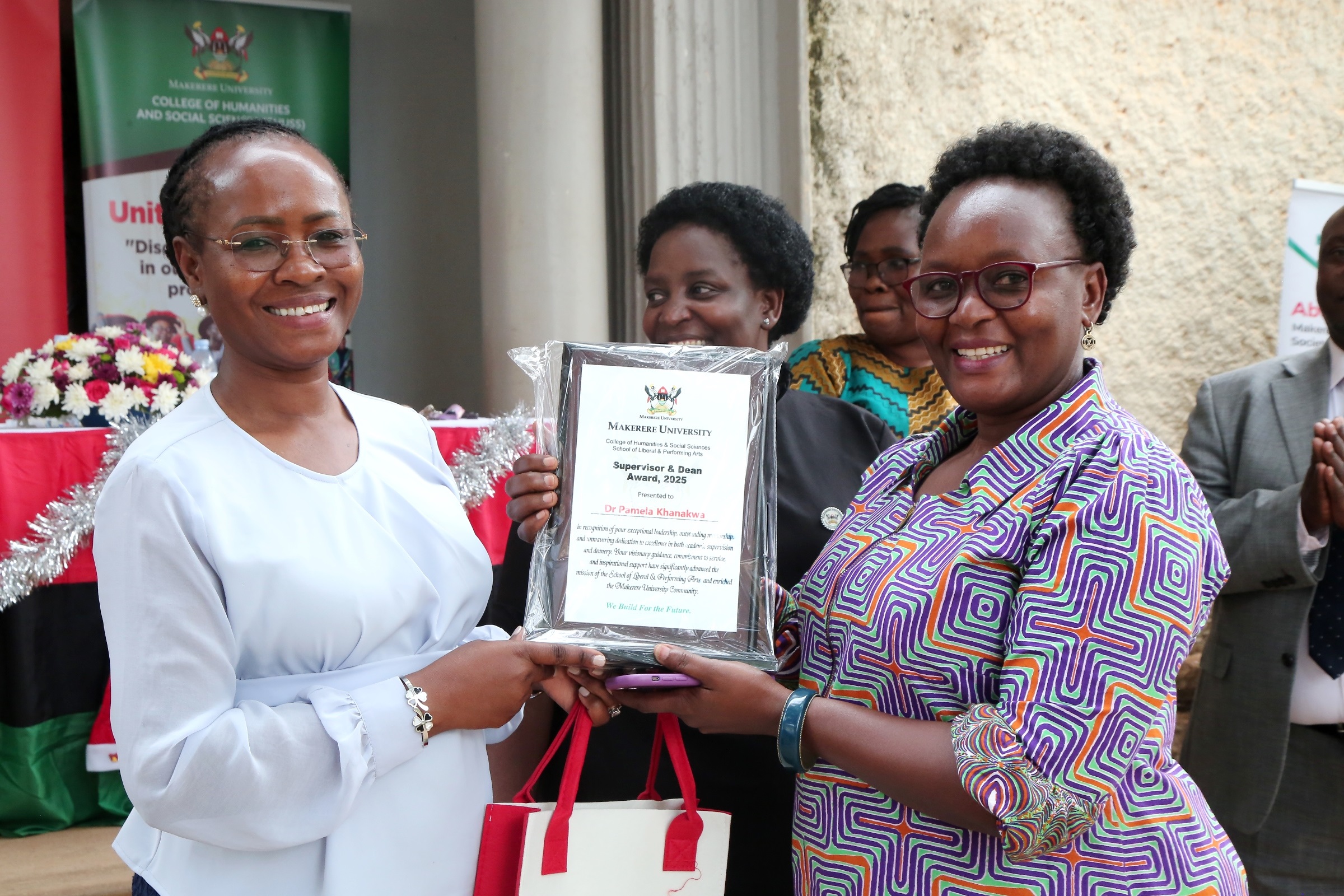
Six personally supervised, three completed in record time, as School of Liberal and Performing Arts sets a historic milestone. Dr. Pamela Khanakwa got the Award as Best PhD Supervisor and Dean
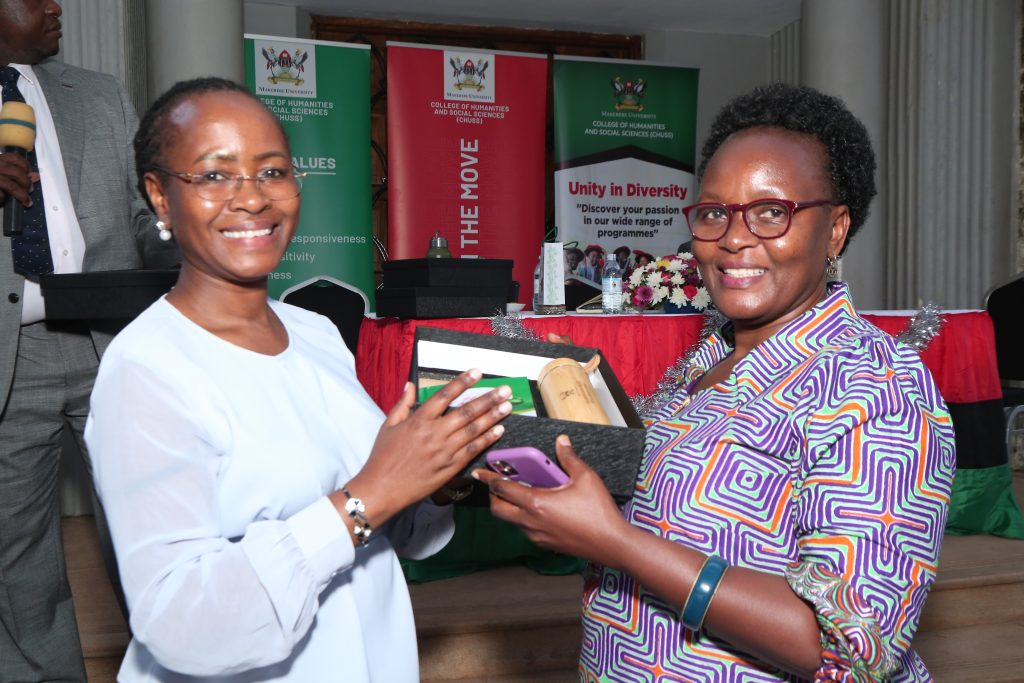
A Historic Academic Milestone for SLPA
The College of Humanities and Social Sciences (CHUSS) recognised the Dean of the School of Liberal and Performing Arts (SLPA), Dr. Pamela Khanakwa, for outstanding academic leadership that has seen the School field 18 PhD candidates for the next 2026 Makerere University Graduation Ceremony scheduled for 24th-27th February. Remarkably, six of these doctoral graduates were directly supervised by Dr. Khanakwa, with three completing within the official three-year timeframe, an exceptional achievement in graduate training. The recognition was announced during the CHUSS End-of-Year Get-Together, where staff applauded Dr. Khanakwa’s dedication, humility, and relentless commitment to postgraduate supervision and timely completion.
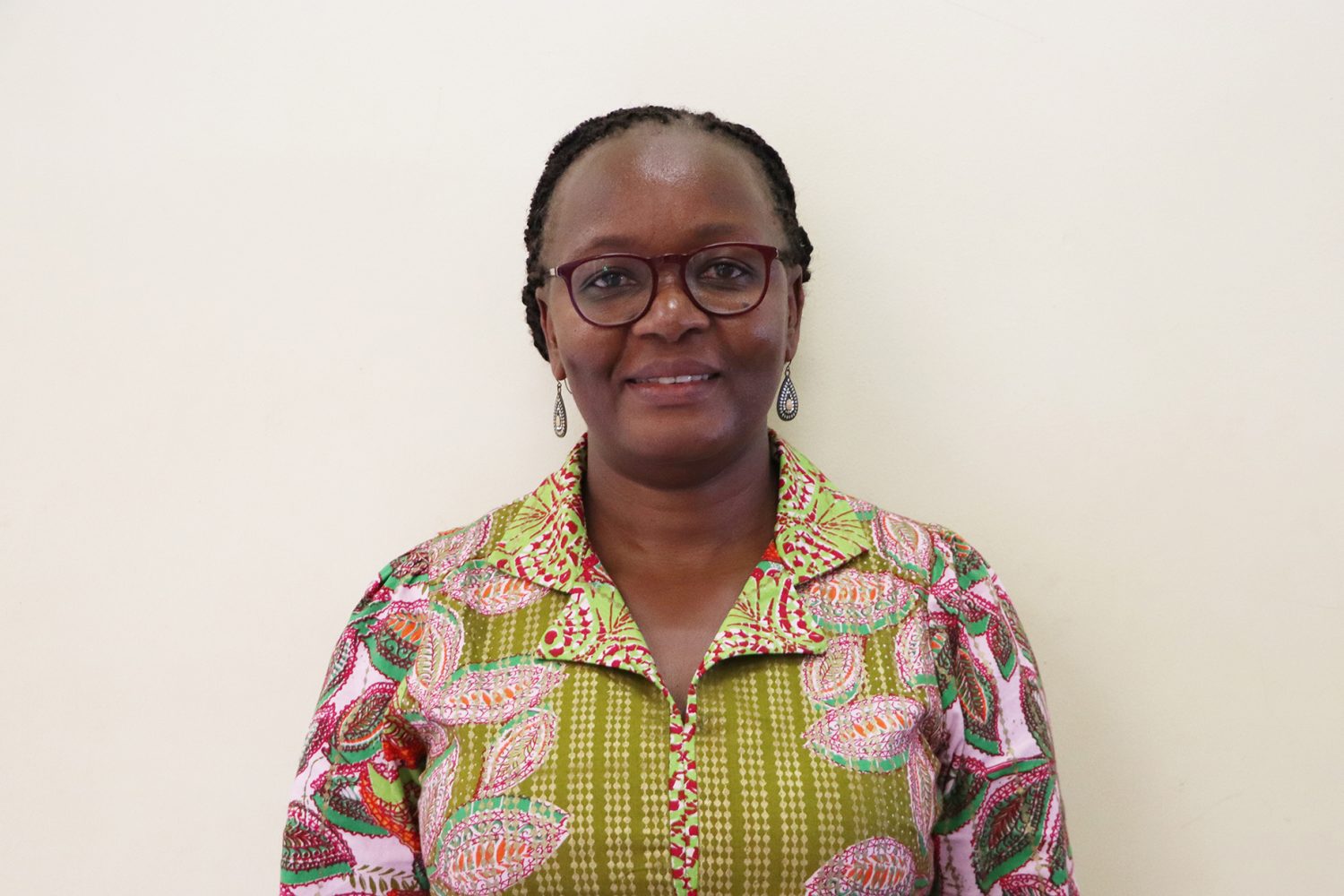
Message to Academic Staff
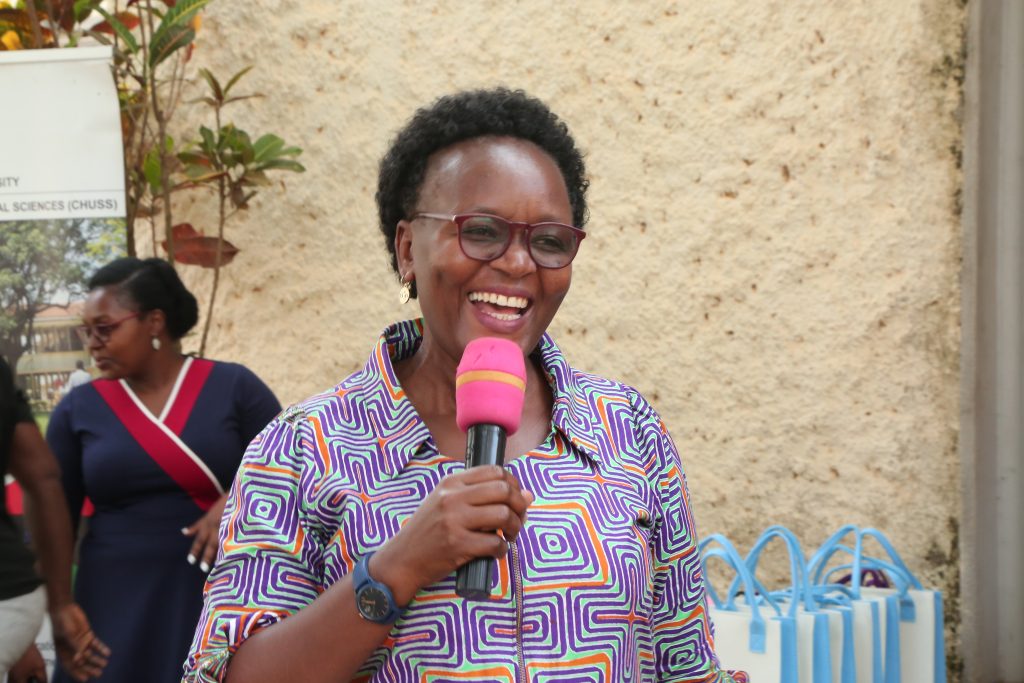
Q: What message do you have for your staff following this achievement?
Dr. Khanakwa:
First, I celebrate my staff and thank them for their dedication to supervision and student support. Academic work is demanding, and material rewards are often limited, but the true satisfaction comes from seeing students succeed.
I encourage my colleagues to remain committed. Yes, the workload is heavy, but many things are possible with dedication and teamwork. Let us continue working for the good of our students, our School, and Makerere University.
Leadership Rooted in Humility
Q: Many colleagues describe you as humble, down to earth, and hardworking. What shapes this character?
Dr. Khanakwa:
I think it is largely my upbringing. My mother was a primary school teacher from the 1950s until the mid-1980s. She worked extremely hard to raise us, combining teaching with farming to ensure we had school fees and basic needs. From her, I learned humility, discipline, and the value of hard work.
I also learned that leadership positions are temporary. You occupy them today, and tomorrow you move on. So humility is essential.
My graduate training also shaped me significantly. My PhD supervisor emphasized that graduate study is a full-time job and that results matter more than noise. Let people see your work through outcomes, not announcements.
Supervision as a Two-Way Commitment
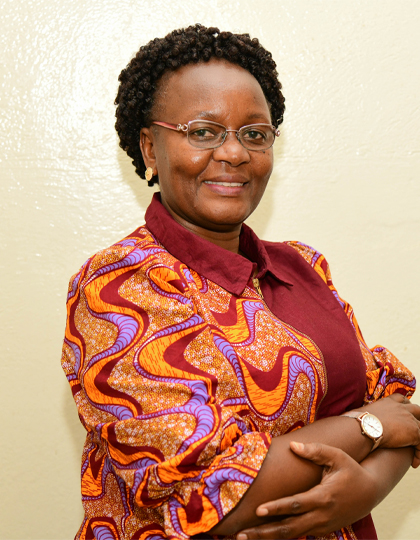
Q: How would you describe your supervision style?
Dr. Khanakwa:
I read my students’ work thoroughly, word by word. Sometimes my comments are tough, but they are honest. Supervision is a two-way commitment. I give feedback, but students must also respond and remain engaged. When that relationship works, progress happens.
Balancing Leadership, Scholarship, and Family
Q: How do you balance being a Dean, scholar, wife, mother, and daughter?
Dr. Khanakwa:
Honestly, I am not sure I balance perfectly. My mother lives far away in Bukwo, so visiting requires careful planning. My children grew up understanding the demands of academic life. I pursued my PhD in the United States and spent long periods away, but we adapted as a family.
Work has become part of my lifestyle. I use weekends to read dissertations, review manuscripts, and write. Sometimes my children ask if I ever sit without working, but this is the commitment I made. As we often say jokingly, “We humbly applied for the job, so let us do the job.”
Scholarship Beyond Supervision
Dr. Khanakwa is also an active scholar and editor. In the past year alone, she has:
- Edited scholarly volumes on archives, memory, method, and pedagogy
- Published a book with Routledge Companion
- Co-authored journal articles and book chapters with graduating students, including Priscah Asiimwe and Anatoli Lwasa Mpijja
“I feel an obligation to write with students,” she notes. “It takes time, energy, and commitment, but it is part of academic mentorship.”
Who Is Dr. Pamela Khanakwa?
Dr. Pamela Khanakwa is the Dean, School of Liberal and Performing Arts, College of Humanities and Social Sciences, Makerere University. She is a seasoned scholar, supervisor, administrator, and mentor whose leadership continues to redefine graduate training excellence. Details about Dr. Pamela Khanakwa can be accessed at: https://chuss.mak.ac.ug/en/personnel/pamela-khanakwa/
More details are available in her attached curriculum vitae.
The CHUSS End- Of-Year-Get-Together
On 12th December, 2025 the college leadership organised a get-together end of year gathering to take stock of the achievements, challenges and brainstorm together on how to move forward. The event was marked by entertainment, team building games, appreciation speeches, sharing a meal and a Christmas package for every staff
Retirees and staff recognised
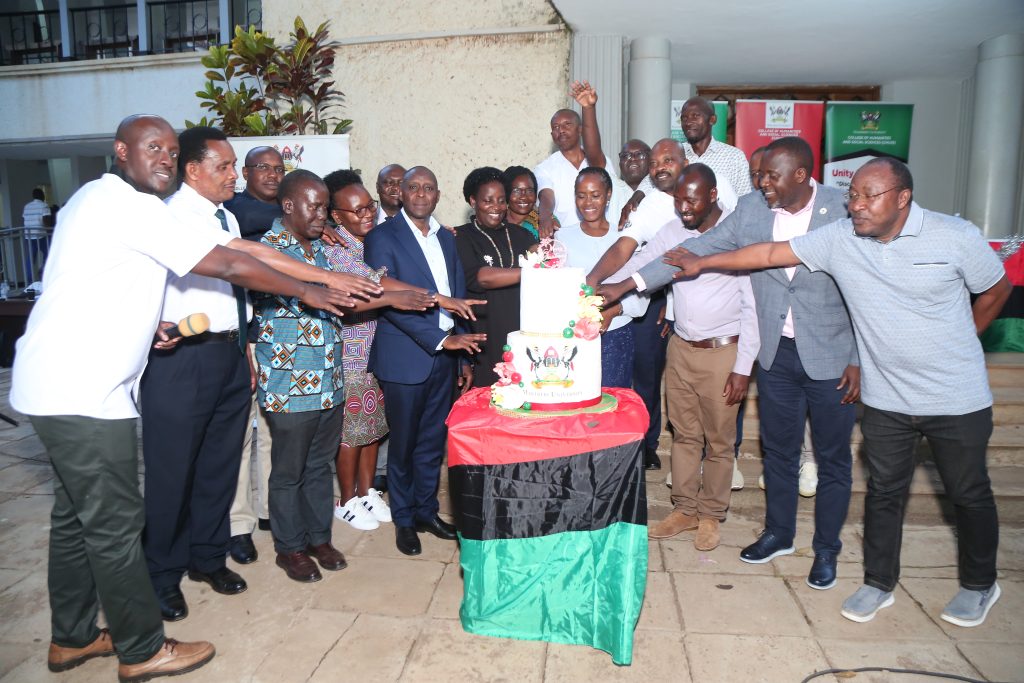
Five retired staff Dr. Micheal Wangotta Masakala, Dr. Anatole Kirigwajjo and Dr. Jackson Kizza Mukas (all from the School of Languages, Literature and Communication), Assoc. Prof. Florence Nansubuga (School of Psychology), Dr. Tusabe Gervase (School of Liberal and Perforing Arts) and Ms. Scovia Nganda Sekweyama (secretary from the School of Social Sciences) were recognised for their dedicated services to the university.
In addition to Dr. Pamela Khanakwa’s Award as Best PhD Supervisor and Dean, Ms. Birabwa Florence scooped the award of Best Registrar of the year. Birabwa is the registrar for the School of Liberal and Performing Arts.
Administrative and support staff including Ms. Mary Gyezaho and Annet Kashumbusha(both administrative secretaries in the Principals office), Farouq Lule (IT Officer), Godfrey Kakooza (cleaner), Charles Sebuguzi (driver) and Jane Anyango (Communications officer) were recognise with awards for outstanding service. Dr. Mohamed Mayanja Kajumba was from the School of Pyschology was recognised as the person with an outstanding talent in Handwriting.
The celebrations held in the Arts quadrangle were graced by the Vice Chancellor Academic Affairs Prof. Sarah Ssali and the Deputy Vice Chancellor in charge of Finance and Adminstration Prof. Ireeta Tumps.
Humanities & Social Sciences
Ugandan Journalists Trained on Peace and Gender-Sensitive Reporting Ahead of 2026 Elections
Published
2 months agoon
January 9, 2026By
Jane Anyango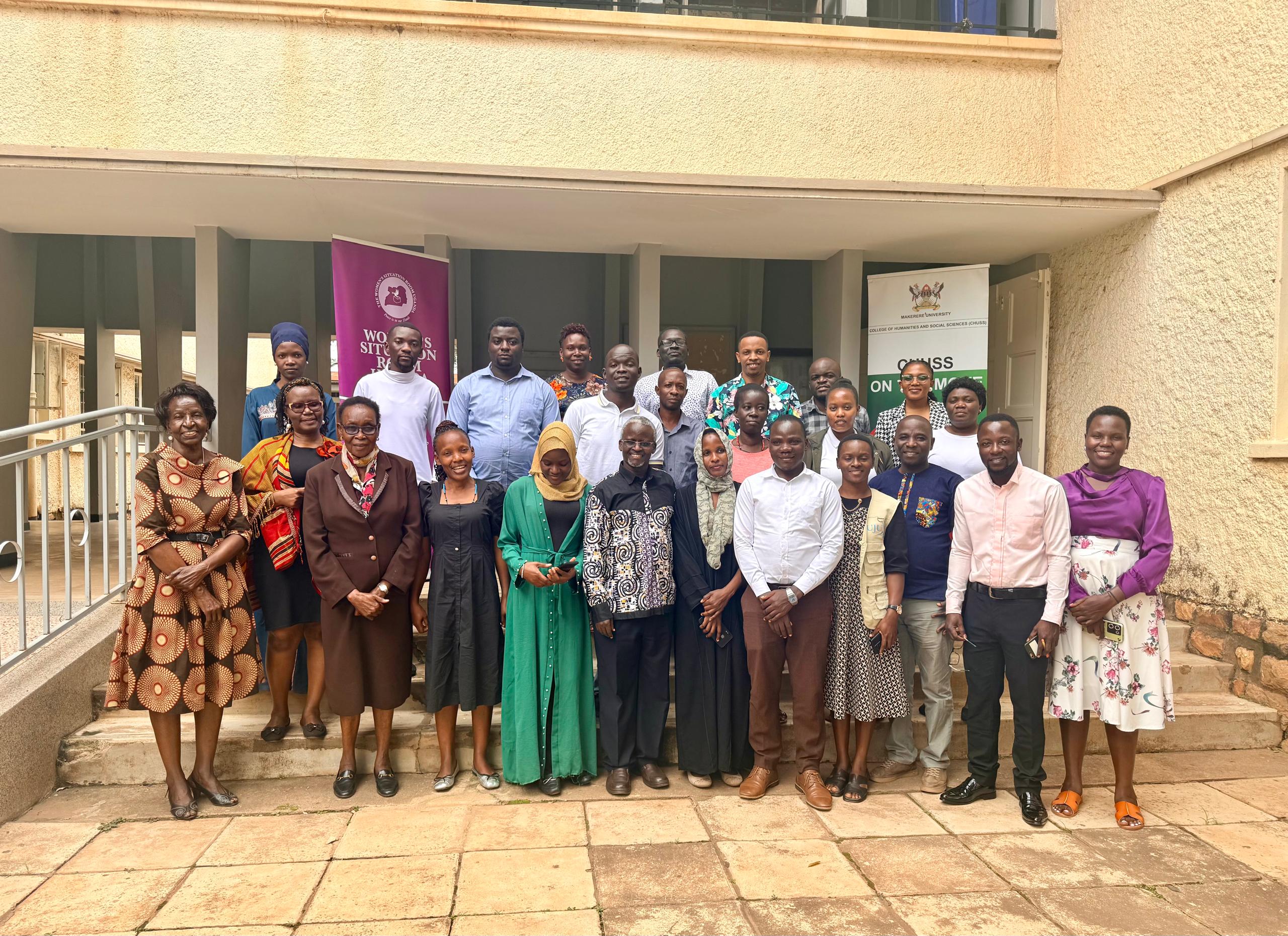
Kampala, Uganda – January 9, 2026
Ahead of the January 15 general elections, Ugandan journalists have undergone specialized training on peace and gender-sensitive reporting to ensure responsible media coverage during the election period. The two-day training, held from 8th to 9th January 2026 at Makerere University’s College of Humanities and Social Sciences Smart Room, was organized by the Women’s Situation Room (WSR) in partnership with various stakeholders and brought together journalists from across print, broadcast, and online platforms.
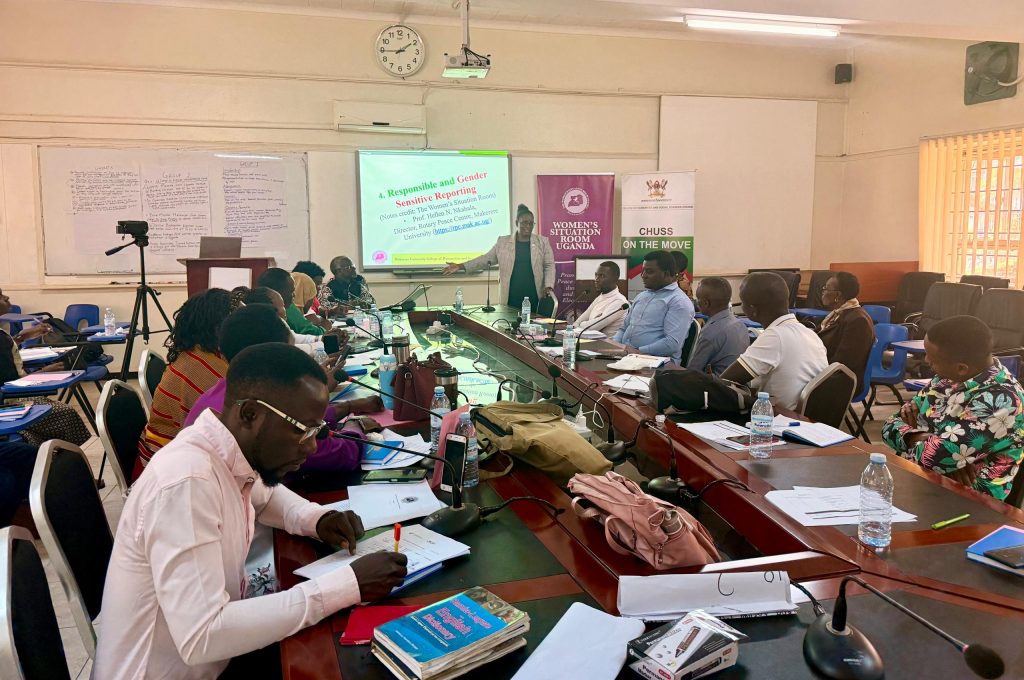
The main objective of the training was to strengthen the capacities of media in reporting and documenting electoral processes in a responsible and gender-sensitive manner. The specific objectives included: strengthening journalists’ skills to cover the 2026 elections in a fair, balanced, gender-sensitive, and non-violent partisan way; enhancing the role of media to enable citizens to be well-informed and actively participate in the election process; ensuring focused and balanced reporting on peace during and after elections; and strengthening partnerships between the WSR and media houses during the election period.
The training covered multiple critical modules. Day one focused on responsible conflict-sensitive reporting, emphasizing principles such as balance, impartiality, and accuracy. Participants explored the role of media as a relayer of the population’s voice, election monitor, catalyst for social cohesion and reconciliation, contributor to the accountability of political actors, and a platform for detecting and debunking digital media misinformation and hate speech.
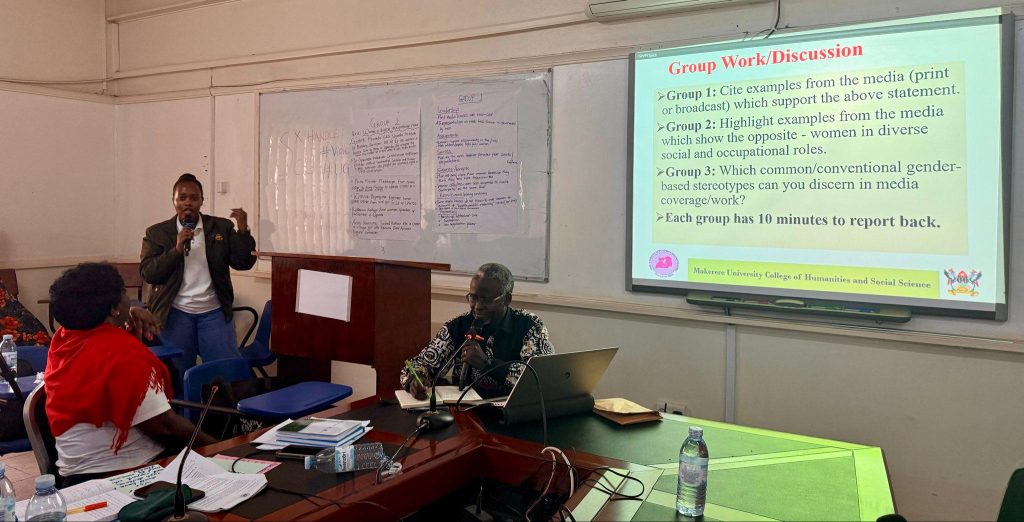
Day two addressed responsible and gender-sensitive reporting. Key aspects included the definition of gender-sensitive reporting, how to become a gender-sensitive reporter, critical elements in reporting with gender awareness, packaging gender-sensitive stories, and a checklist for detecting and avoiding gender-insensitive reporting.
Her Lordship, retired Judge Justice Mary Mayitum, emphasized the importance of peace as the foundation of development and democratic engagement. “Because we value peace more than anything. Without peace, really, you can do nothing. But where there is peace, you can have time to reflect, discuss with others, and join in meaningful dialogue,” she said. She warned that the country’s past conflicts, such as those in Gulu, underscored the necessity of maintaining national harmony.
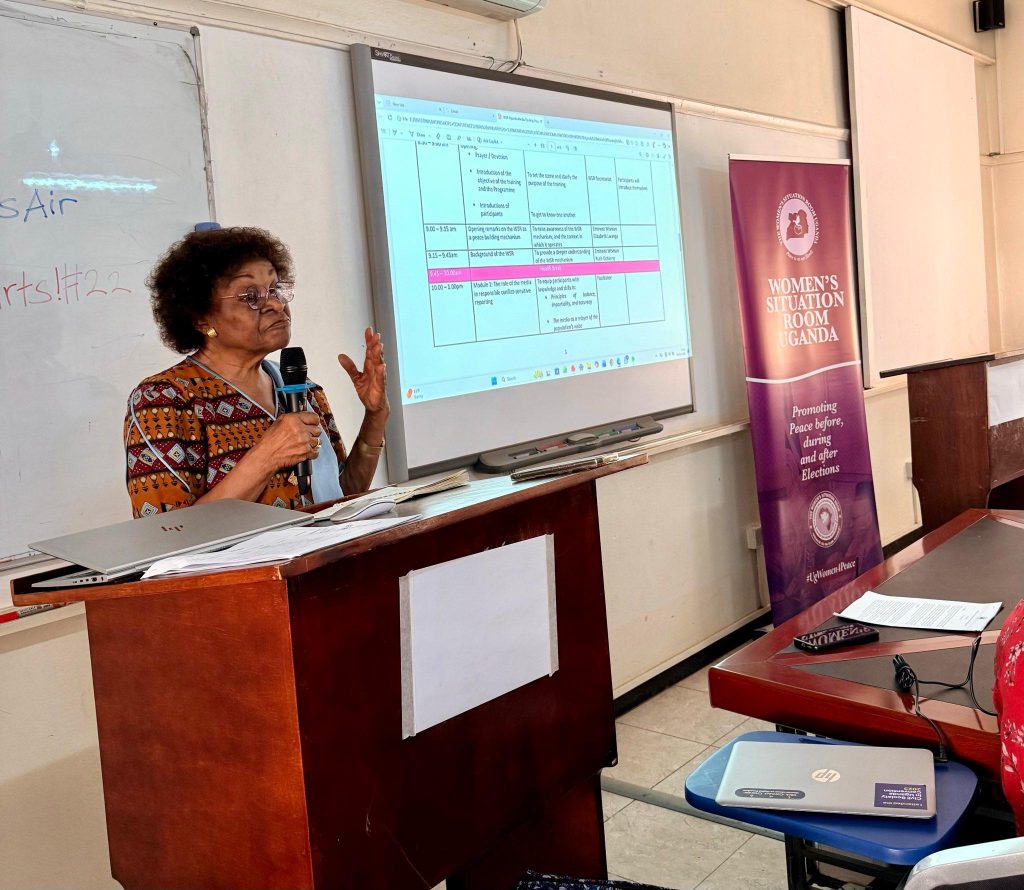
Justice Mayitum also urged other key election stakeholders to uphold peaceful conduct. “Being peaceful is the very heart of life. We have spoken to police, security personnel, political parties, and the Electoral Commission. We want politicians to have a code of conduct and to understand that it’s okay to think differently without fighting or hating one another,” she added.
Dr. William Tayebwa, lead facilitator and senior lecturer in the Department of Journalism and Communication at Makerere University, said, “This training is about conflict-sensitive reporting, peace journalism, and gender-sensitive reporting in the context of the elections. The emphasis was on giving female political candidates a voice while ensuring journalists report responsibly on election-related matters.”
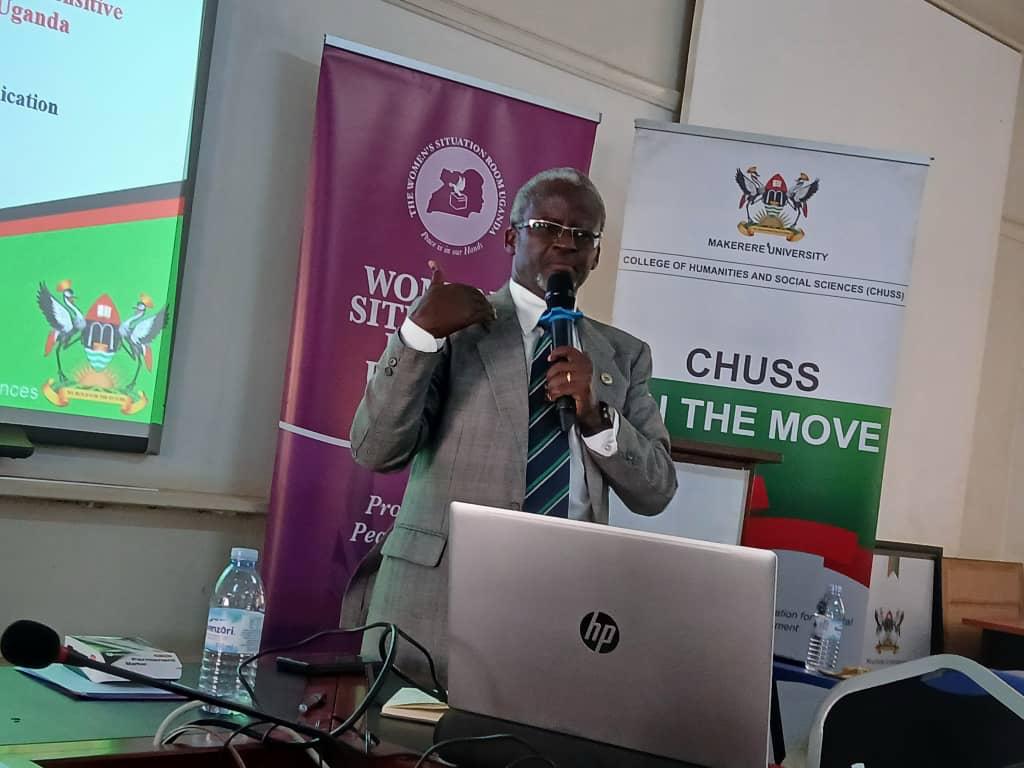
Participants described the training as timely and impactful. Tony Banizengabo of CBS Wakiso District said, “We’ve benefited a lot. We’ve been trained to write stories which bring peace, not conflict. Ahead of the elections, we are very ready to be part of peacemakers.”
Dorcas Kimono of UBC TV Kampala added, “It was so timely and rich. We learned how to report without promoting or fueling violence, giving voice to victims without angering them or encouraging violators. This is very vital, especially as we approach the 2026 elections.”
The training aims to equip media personnel with the knowledge and skills to uphold professional ethics while contributing to a peaceful, inclusive, and gender-sensitive electoral process.
Trending
-

 Humanities & Social Sciences2 days ago
Humanities & Social Sciences2 days agoMeet Najjuka Whitney, The Girl Who Missed Law and Found Her Voice
-

 Health7 days ago
Health7 days agoUganda has until 2030 to end Open Defecation as Ntaro’s PhD Examines Kabale’s Progress
-

 Agriculture & Environment5 days ago
Agriculture & Environment5 days agoUganda Martyrs Namugongo Students Turn Organic Waste into Soap in an Innovative School Project on Sustainable Waste Management
-

 General7 days ago
General7 days agoMastercard Foundation Scholars embrace and honour their rich cultural diversity
-

 Health2 weeks ago
Health2 weeks agoCall for Applications: Short Course in Molecular Diagnostics March 2026
